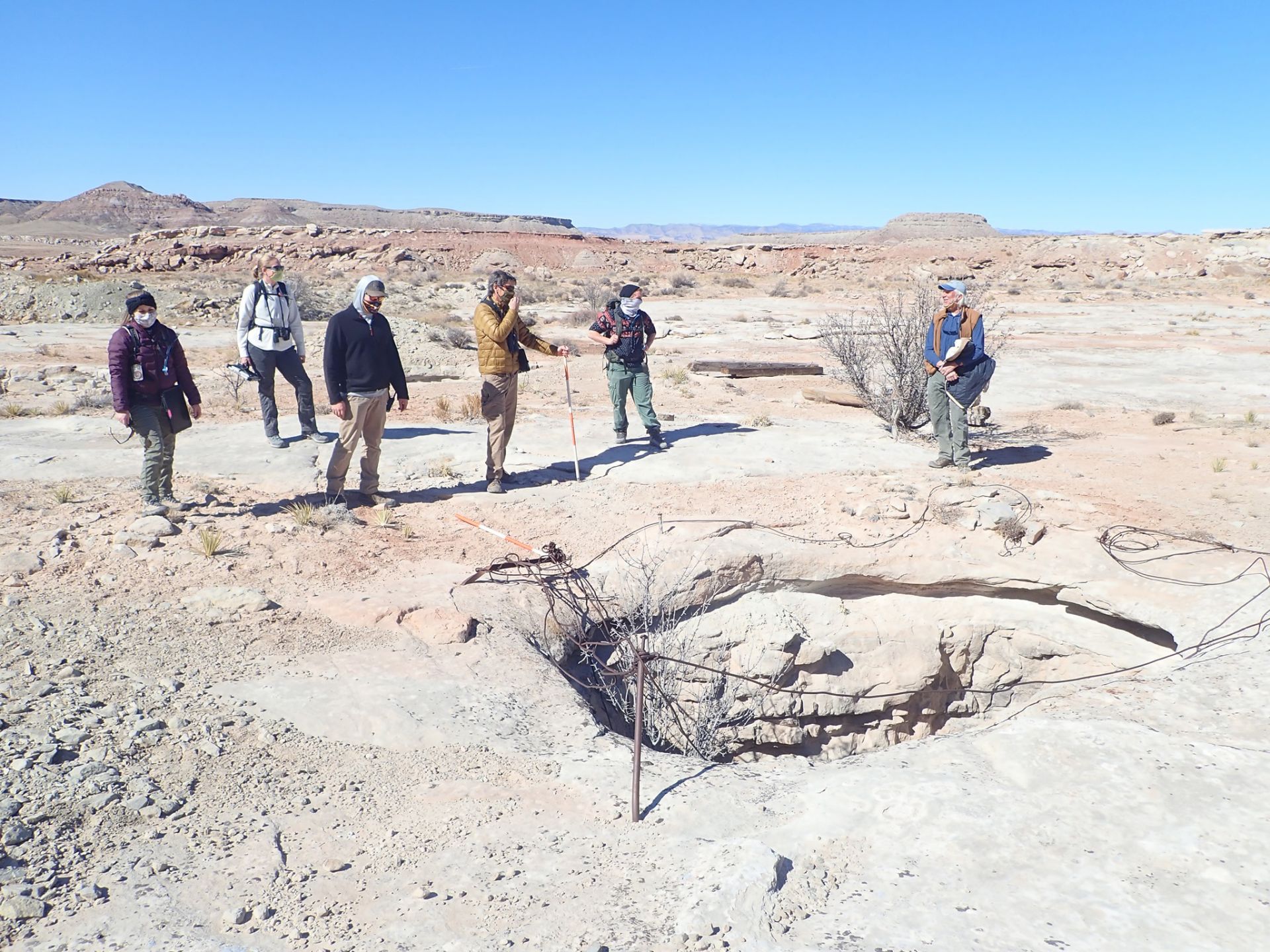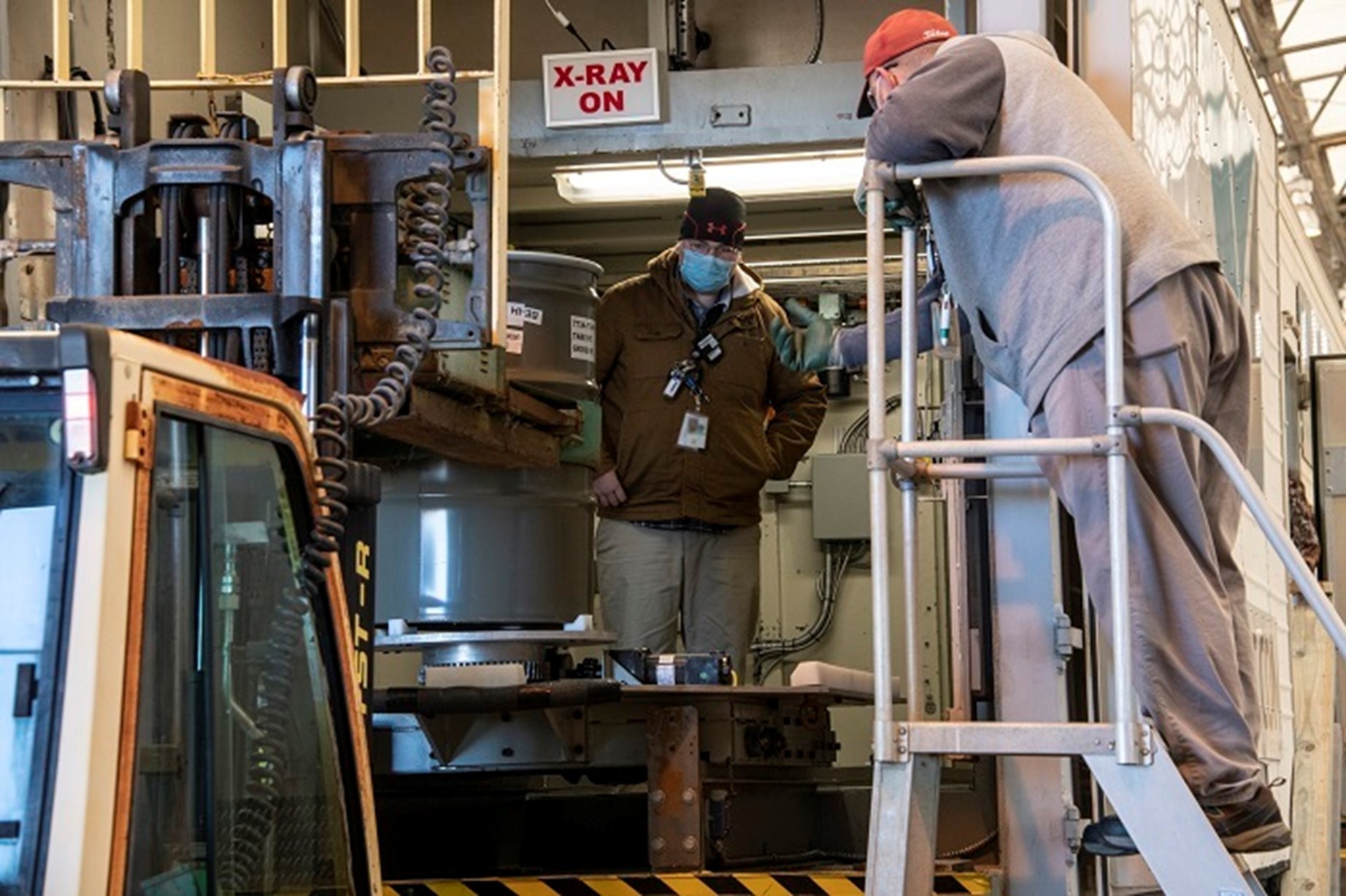DRUM team members at the Telluride 18 mine in the Yellow Cat area of southwest Colorado.
Based on a review of U.S. Atomic Energy Commission (AEC) records and available data from numerous agencies, there are an estimated 4,225 mines across the country that provided uranium ore to the U.S. government for defense-related purposes between 1947 and 1970. To aid in the cleanup of these legacy uranium mines and establish a record of their locations and current conditions, the Defense-Related Uranium Mines (DRUM) program was established within the Department of Energy’s Office of Legacy Management (LM).
Operators load a TRU waste drum into a real-time radiography unit for characterization at the Solid Waste Management Facility at the Savannah River Site. (Photos: DOE)
Operators at the Savannah River Site’s Solid Waste Management Facility can now characterize and certify newly generated TRU waste through the use of a real-time radiography unit that uses an X-ray system to examine the contents of waste containers. The equipment was recently installed to meet updated requirements set by the Department of Energy’s National TRU Program that involve evaluating the containers for chemical compatibility and oxidizing chemicals.
The shipments of TRU waste from SRS, in South Carolina, are sent to the Waste Isolation Pilot Plant (WIPP), in New Mexico, for disposal.



